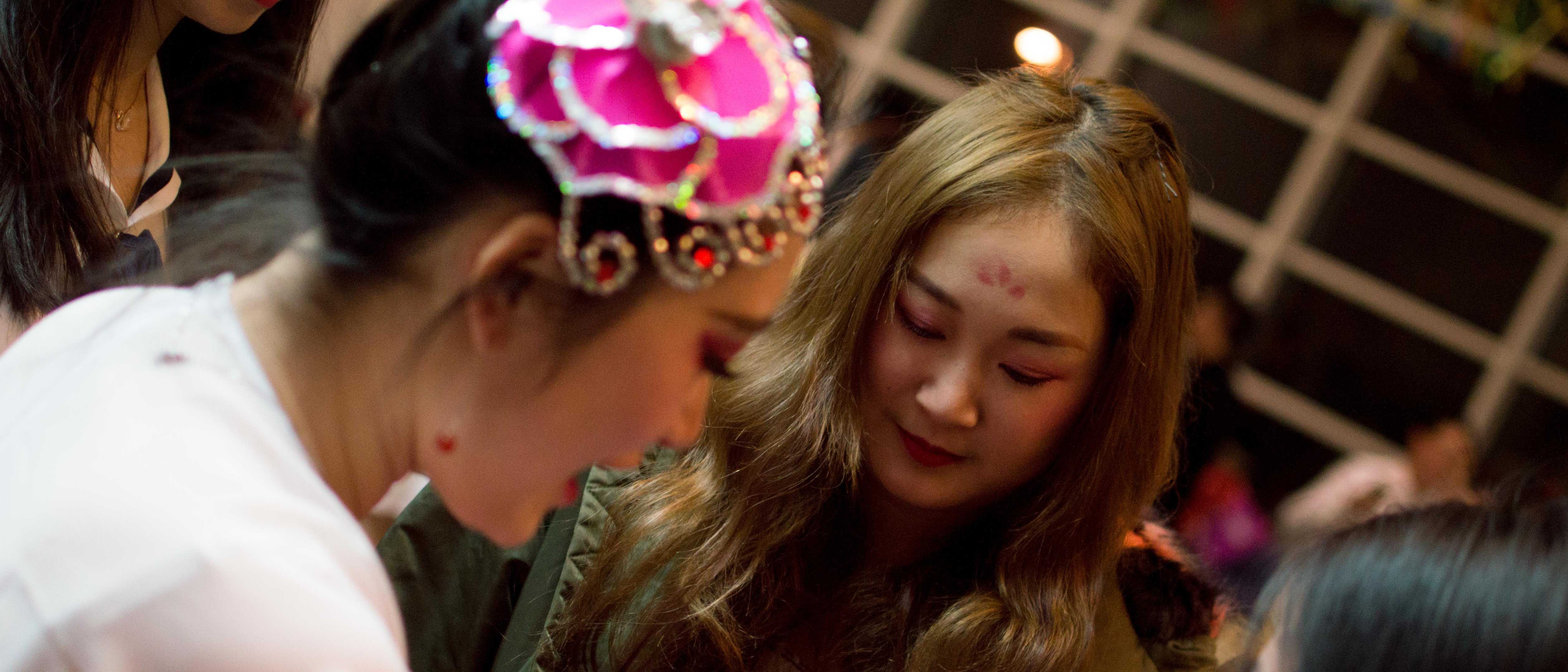The Chinese Student and Scholar Association put on their annual Chinese New Year celebration on Jan. 21. The evening began with a dinner featuring many traditional Chinese dishes. Cold dishes included tofu with Chinese hot sauce, Chinese cabbage, celery with spiced tofu, and chicken with crispy rice. The hot dishes were stir-fried shrimp, Shanghai bok choy, tofu with mapo hot sauce, tomatoes with beef, and salt and pepper spare ribs. All of the dishes were prepared by student volunteers, a remarkable accomplishment and a true delight for the large crowd in attendance.
After dinner, guests enjoyed a performance at the Rozsa, including songs, dances, and comic dialogues. The first act was called Three and a Half and featured a type of Chinese folk art called shuochang which featured poetry expressing the excitement of the New Year. “Three and a Half” refers to the number of phrases in each stanza of poetry.
The next act was a dance called “sleeve dance,” also known as “Picking Roses,” and featured lyrics from the classic Book of Songs. The dance is very popular in China and is called the sleeve dance because of the long, flowing sleeves worn by dancers in the graceful traditional performances for which they are worn. Dances performed also included “No No No,” a popular K-pop song by A Pink, and a Taiji performance. Taiji is a martial art, and the performance reflected the principles of yin and yang, applying them as movement and tranquility.
Next up was a piano solo performed by Yu Li, age 12. Her two songs, beautifully delivered, were a classical piece originating early in the Qing dynasty called “Cai Yun Zhui Yue,” as well as Chopin’s “Grande Valse Brilliante.”
In another performance, guests were entertained with kuaibanr, a rhythmic comic dialogue performed with bamboo clappers. The performing art originated in Tianjin, China in the middle of the last century. The performance was delivered entirely in Chinese, but the charisma of both performers crossed cultural boundaries, successful in amusing all in attendance.
Songs performed as solos were “What Else Do You Want Me to Do,” by Xue Zhi Qian and “Not That Easy” by Huang Xiao Hu. The final song of the event was performed as a group, and was called “Zhanqilai.” A group chorus was also performed by Chinese faculty as they sang two songs, entitled “365 roads” and “Home Upon the Sky,” songs which meditated heavily upon themes of gratefulness, persistence, and optimism for the future.
Another tradition observed by the CSSA was that of the “hong bao” or red envelope. These are gifts presented to family and friends at holidays and other social and family gatherings such as the Chinese New Year. Red is considered a very lucky color in Chinese culture, and the gifts are usually presented to signify good will. In the case of this celebration, the tradition was observed through a raffle in which winning audience members would come to the stage to claim their hong bao.
The songs and performances varied widely in their tones, from somber to celebratory, but ultimately, guests left with high spirits and a renewed sense of intercultural enjoyment and solidarity as they rung in the New Year.


